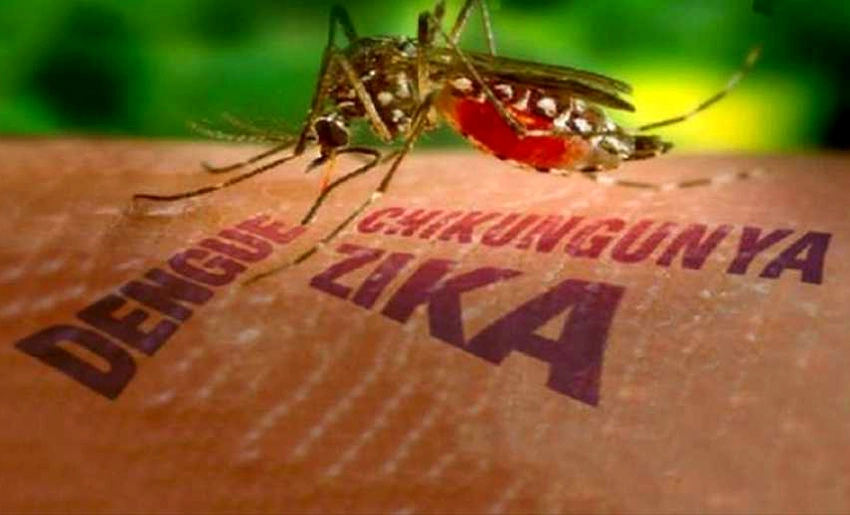Arboviruses have a significant impact on the epidemiological landscape of Holguin. A health situation that has worsened due to environmental and social conditions favorable to the reproduction of mosquitoes and midges.
Since the last five years, during the months of September and October, an increase in suspected cases of diseases transmitted by these insects has been reported. This is corroborated by the recent call from the Ministry of Public Health (MINSAP by its initials in Spanish) to strengthen citizen cooperation in eliminating mosquito breeding sites. Following confirmation of the circulation of dengue, Oropouche, and Chikungunya viruses in the country.
Preventing the diseases transmitted by these insects—Aedes aegypti, Aedes albopictus, Culex, and midges. In our country is currently a real challenge because the environment around us is anything but favorable.
Climate change, socioeconomic problems, the impact of uncontrolled urban development. Also the lack of adequate sanitation are undoubtedly contributing to this worrying health situation.
How can we prevent mosquito bites? The situation is complex considering the high temperatures and rainfall that favor their proliferation. In addition to the persistent difficulties in vector control and focal treatment, poor drainage infrastructure, social indiscipline, and the widespread accumulation of solid waste.
Although there are strategies aimed at identifying and mitigating the main environmental and social risk factors related to the multiplication of Aedes. Its infestation rates have remained a worrying health issue in Holguin for several years. In this region, approximately 90% of its positive cases are detected in the water storage system in homes.
Likewise, current economic conditions limit the ability to implement effective preventive measures. As resources for adulticide treatment are scarce, and many Holguin residents lack the ability to use mosquito nets and repellents. Which would be very useful at night when the population suffers from prolonged power outages.
Furthermore, they are unaware of the preventive practices they could adopt to reduce mosquito infestations. Such as hygiene habits that reduce breeding grounds both in the home and in public spaces.
However, it is imperative to continue implementing an approach that integrates both environmental intervention and community education. As well as having the necessary resources to address these health challenges.
Preventing epidemic peaks of arboviral diseases is a health challenge that involves all stakeholders in society. We must not forget that there is no specific treatment for these viruses, only general measures to alleviate symptoms. Therefore, we must take personal and institutional responsibility to avoid becoming ill from this cause. Especially when the Cuban healthcare system is facing a difficult situation.
Translated by Aliani Rojas Fernandez
- Social Responsibility in Today’s Cuba - 17 de January de 2026
- Cuban Science with a Transformative Impact on Society - 15 de January de 2026
- Safety Road, Everyone’s Responsibility - 29 de November de 2025

